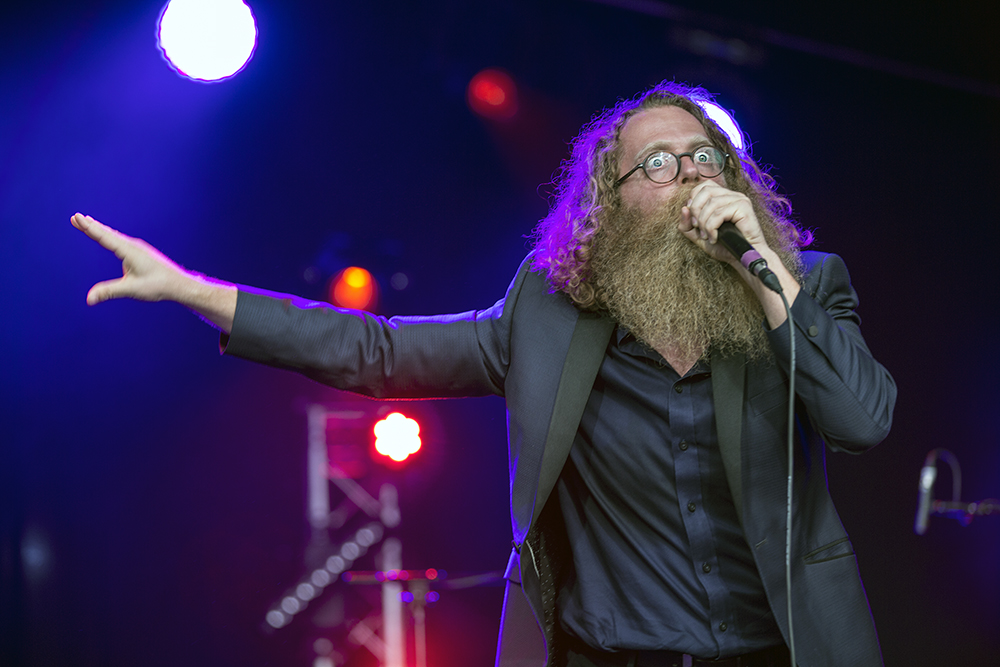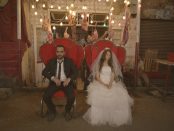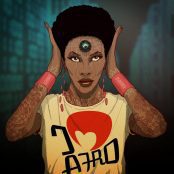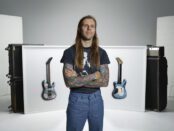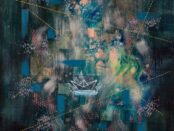[dropcap style=”font-size:100px;colour:#46ffa5;”]C[/dropcap]anadian musician and composer, Ben Caplan has a remarkable beard, even by folk standards. But then nothing about him is understated – from his theatrical stage performances, to his deep booming voice, to the existential themes in his songwriting.
His two sets at Cambridge Folk Festival 2019 included songs from successful stage show, Old Stock: A Refugee Love Story, which has played at the Edinburgh Fringe and Off Broadway, and still has months of dates lined up, including a run at East London’s Wilton’s Music Hall from 18th September to 28th September.
I spoke with him following his second set at the festival.
SCB: I want to start by asking you about Old Stock: A Refugee Love Story. How did the stage show come about in the first place?
BC: It was the director of the piece and the co-creative director of the theatre company who approached me and said: Would you like to make a piece of theatre together? I had really no idea of what to expect or what would be involved or anything. I had done some work in the theatre more than a decade ago but I had spent a long time away from it so I was welcomed back in.
We spent a long time beating ideas around and trying to figure out what to make a show about and it was in about month two of these occasional meet-up sessions that we saw this terrible photograph of the young Syrian boy, Alan Kurdi on the beach in Turkey and we thought, jeez we must make a show about refugees because it appears to be something that needs some sort of humanising tale. It seemed like politically important work to be doing. So we started slowly unearthing stories and thoughts.
“we’re still suffering the consequences of an undiagnosed illness”
Then our third co-creator, who was a woman by the name of Hannah Moscovitch, discovered the story of her great grandparents who migrated to Canada. So we decided to include her in the project. She just happens to be an award-winning playwright and she wrote the book for us and we based it around the story of her great grandparents.
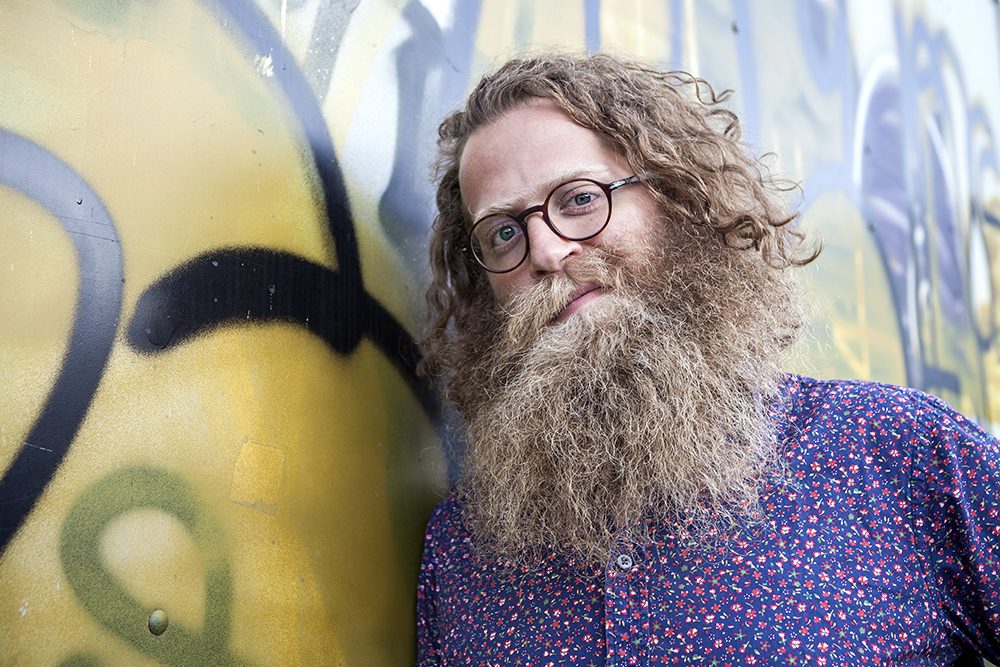
How important do you think it is to tell a story of individuals, and can that approach overcome the negative portrayal of immigrants in the media?
I don’t know if it can overcome that. What I think it can do is temper some of the dehumanisation that becomes tied in with speaking about people en masse. When we’re talking about policy, it’s so politically tempting to use fear as a tactic while you’re in power. In that process, the humanity of the people who are being discussed is so easily lost. I just think it’s important to take a moment to reflect on the fact that they are human beings. It’s so easy to ‘Other’ these people, to think, ‘Oh well, they’re in a chaotic part of the world and it has nothing to do with me.’
It’s important to remember Syria’s not a backward sand dune of a country. People who were on these boats were working as computer programmers, were working in shopping malls, etc. I mean, they were people who were living, for many of them, middle class lifestyles. They’re not so different to us.
It is about having that empathy to remember they didn’t earn the status that they have right now, they are responding to chaos that is happening around them. We have a responsibility as human beings in positions of privilege to try to treat people in the way that we would hope to be respected when the chaos eventually comes for us.
Much of the music in the stage show has a klezmer influence. Is that because it was the story of Jewish immigrants or had you planned to use that style of music anyway?
It’s a flavour of musical influence that has been a strong current in much of my work so there was that at the outset but I did think that the music quite fitted the piece in terms of the identity of the lead characters. In a funny way there’s no such thing as klezmer music. The term ‘klezmer’ in Yiddish just refers to musical instruments so ‘klezmer music’ is just ‘musician’s music’ or ‘music music’.
Depending on which country or which region you are in, the styles and the influences vary vastly. To a more Western European ear, it might be harder to draw the distinctions but Latvian klezmer music draws on influences from Latvia, and Bulgarian klezmer music draws heavily on influences from Bulgaria.
For me, that knowledge gave me the licence to take these different modes and styles and flavours, and to blend them with my own influences because I’m not living in 1926 in Bulgaria, I’m living in 2019 in Canada. For me, it was important to treat it as a living tradition and to allow myself the licence to play around with it.
What did you listen to growing up – who was on your bedroom wall posters?
The Doors and The Grateful Dead. I was a big fan of Fish. As I got into my early teen years I started listening to a lot of Bob Dylan and Joni Mitchell. As someone interested in musical theatre, I think that comes out a little bit here and there! Those would be the big ones, also Neil Young.
Your performance style is very theatrical and you once considered acting as a career – what put you off?
What a terrible way to make a living – music is so much more sane!! I had to make a choice as I was going into my second year at university. I was quite split between my academic responsibilities, starting to gig more and more out and around in the pubs, and I was quite involved in the theatre community in Halifax as well. It was just too much and I had to pick something to drop.
Theatre was the thing I dropped, mostly because you have to rely on such a broad network of talent in order to pull something off. In fact, in the early days, you have to rely on a broad network of talent of people who are willing to work for almost nothing. I just couldn’t see the paths to making a success on my own terms.
In music it’s much easier, not that it’s easy at all, but it’s easier to be the writer and the director and the choreographer and all of those things. It’s much more manageable to take that on for one’s self. I never quite found a team around me that understood what I wanted to do and that I could delegate to effectively. I have been my own manager, tour manager, producer, label, all of these things, which is a much more difficult thing to do in the theatre.
There must be some letting go of control when you’re collaborating with others on projects like this though?
It is necessary, yes, but I think I’m at a point now where I’m very privileged to have the budgets, not always but in many situations, have the budgets to be working with large groups in a way where people are earning a living wage. That was the thing that so scared me about the theatre because I didn’t see any role models who were doing work for themselves, who were able to generate the artistic impulses and earn a living, or have any path to making a living. I’m very lucky now that I have many opportunities to work with large groups where people are treated as trained professionals and in those contexts it’s not hard to delegate because you trust the people around you.
There are a number of Canadian artists at the Cambridge Folk Festival this year. I think that for those of us in the UK, Canada has a reputation for being quite liberal compared to its neighbour. How do you think growing up in Canada has affected your psyche?
I think that we certainly have our conservative threads in Canada, we do have our right-wingers as well, but I think that part of the national identity of Canada and part of our national story is about pluralism. It’s about representing the breadth of cultures that are represented in our country.
I think that we don’t give enough credit in Canada to the indigenous people who really profoundly informed that approach to nation building. I think that within the indigenous cultures there was a concept of a widening circle and the wider the circle is, the stronger is the centre. It’s about recognising and respecting difference rather than trying to erase it.
In the context of Western European colonialism, difference was always seen as a threat and there was a strong impulse to create monocultures. We see that in the erasure of indigenous cultures in the UK whether it’s the various Celtic tribes or the Druids. We forget that French wasn’t the only language spoken in France; there was a strong Basque culture that was squished.
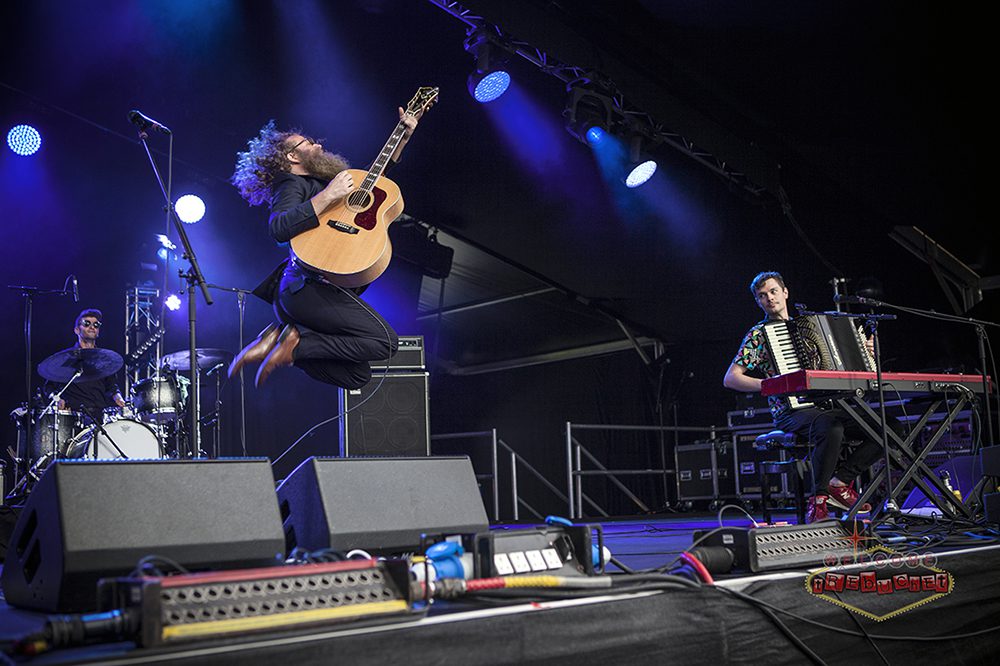
In Canada, there wasn’t the same centralised power that had the capability of squashing out the various cultures and so it had to find another way of dealing with it, and our approach has been to embrace it. I think that we have a cultural technology in Canada that we don’t always recognise ourselves but I think that we have something useful to share with the world. In this political moment it seems like it’s not going that way so I very much hope that we can find the strength as a nation to continue to hold that space for the world and to be an example of different cultures living alongside each other.
Do you think that there is progress in history or do you think that the world is now heading towards barbarism?
I don’t believe in directionality at all. I think that what Aristotle called teleology, the idea that history moves forward in a way of progress, in the sense that evolution is progress, is a dangerous way to think. It assumes that progress is inevitable and we’re now witnessing that what we had thought of as inevitable progress is turning out not to be true.
The sense of historical evolution removes from us a responsibility of safeguarding the hard-won victories of the last 100 years, whether it’s the trade union movements or just the movement of creating democracy at all. To assume that democracy is a progression from something else means that we don’t have a crucial responsibility to safeguard that democracy. Assuming that progress is a natural thing opens the door to losing the gains that we’ve earned.
Who is your favourite philosopher and why?
I’ll give you two. First a contemporary writer, a man by the name of John Ralston Saul, who is a Canadian philosopher writing in the contemporary period and I think he’s brilliant. He has influenced a lot of my thinking, in particular my awareness of the indigenous influence on Canadian culture that so often goes unrecognised in our scholastic environments.
Secondly, I’ll say Nietzsche. He’s so often misunderstood in his associations with the Nazis. What I love about Nietzsche is that he has a profound awareness of the necessity of saying yes to each moment. That is something that I try to use as a guiding principle in my own life. It’s very easy to negate the things that are going on around us and whenever I’m in a moment of crisis, or encountering circumstances that are other than I had anticipated or hoped for, I try to live by that Nietzschean credo of saying yes to all things. I think that it gives me the strength to find a way forward. It can be a dangerous philosophy in some ways but at the heart of it, it has something that is very beautiful.
Is God dead?
I think that when Nietzsche said that God is dead, he wasn’t saying it in a metaphysical way that an anthropomorphic deity had died. I think that what he was saying was that religion used to have the power, for a long time in history, to temper the impulses of humanity. In many ways, religion was a useful tool for policing the minds and bodies of people when society doesn’t have the capacity to monitor it. When the village is large than a thousand people, social pressure to be good isn’t enough so you need something else. I think that God served that purpose.
I think that Nietzsche’s insight was that our societies were no longer being policed by God; that the idea of a benevolent, heavenly father that was going to judge the individual was dying or was dead. The kinds of decadence that we were starting to see emerging in the 1890s, 1900s and 1910s is all evidence of the death of God. We exult reason in our society above all things and we forget that the Holocaust and the Nazi will to power was an entirely rational project. It was rational – you can’t deny that it was rational in the sense that if your goal is X and you want to get to there, what are the ways in which you can achieve it. They obviously failed in a large sense but they used reason to guide the process. So reason is divorced from ethics. If God is no longer able to provide those ethics then there is a vacuum. I think that what Nietzsche was really doing was diagnosing a vacuum.
We as a society have still failed 120 years after Nietzsche uttered those words to diagnose that vacuum and to do anything about it. We continue to struggle with that. I think that Nietzsche outlined the problem a good long time ago and we’re still suffering the consequences of an undiagnosed illness.
You have a song about the way that people take religion literally. Do you think that fundamentalism, in all cultures and religions, is a major problem for the world now?
I think that we live in a society that is increasingly complex. Every question now has answers that are shades and shades of grey. Dealing with that complexity on a day-to-day basis is very, very challenging. There are no easy answers anymore. There are many people who are willing to say that things can be black and white, that it is possible to return to a time and a place where things were easy. There is a broad subscriber base for that message. What does fundamentalism mean – it implies a return to the fundamentals, what is at the core, what is at the centre, how can we go back to making it simple again, how can we make black and white distinctions. I think that the answer is that you can’t. We need to deal with complexity.
I think that a figure like Boris Johnson, for example, he offers people clear black and white platitudes. Black and white platitudes are fricking pleasant to hear and to listen to and to believe in but they’re lies. The same is true of fundamentalism – it erases the complexity that is inherent in the rich traditions of each religion.
So my song, Truth Doesn’t Live in a Book is about struggling with this lie that there is an ability to go back and read anything literally or to go back and treat things as if they’re black and white. I think that our political class have abandoned us in many ways because they’ve understood that in a democracy, you don’t have to deal with truths, you have to deal with popular messaging. This is a crucial problem that we have to deal with in our cultures and I don’t know the answer.
Social media doesn’t make it any better, does it?
I think it makes it much, much worse.
What are your future plans – what is the next thing?
I don’t know exactly what the next thing will be. I have a few different albums that I’m starting to work on. There are a few different kinds of sounds that I’ve been tinkering with and I’m also starting to work on a new musical as well, which I shouldn’t say too much about at this stage.
Oh, go on, please do…
Well, we had so much success Off Broadway with Old Stock: A Refugee Love Story and there’s some talk about a run in the West End. Our upcoming run at Wilton’s Music Hall, London in September is partially an exploratory mission to see if we drum up the interest to make it to the West End. But we’re also starting to write a new show that will be on a larger scale that will be designed for larger, more commercial venues.
In the midst of all of this, how do you relax?
Deep breathing, I like to take a long bath when I can, spending time with friends, playing cards, that kind of stuff.
Frivolous last question – how do you care for your beard?
I don’t! This whole beard trend thing perplexes me. I just don’t make time for grooming and it’s just emerged that I have this big beard as a result of that. I have a lot of scepticism around the whole beard oil and beard wax trend. I think it’s a way of transmitting consumer culture to the people who have stopped buying razor blades.
Ben Caplan played Cambridge Folk Festival 2019 on Thursday, 1st August and Friday, 2nd August.
Interview by Sarah Corbett-Batson
Photographs copyright Carl Byron Batson – not to be reproduced or used without express prior written permission

